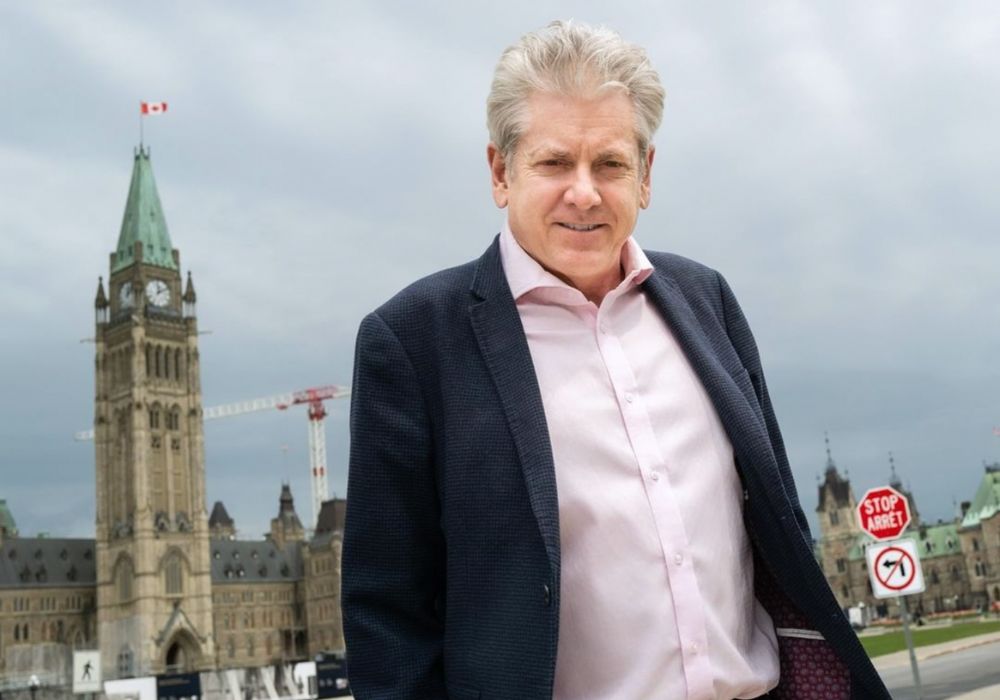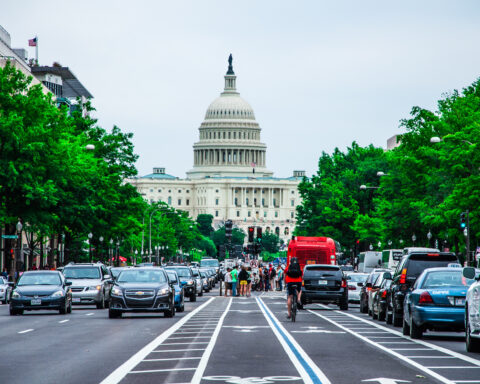The backlash told Charlie Angus he was on to something. In February, the long-time member of Parliament unveiled what is arguably the most aggressive attempt to date to combat greenwashing in Canada: a private member’s bill to ban misleading fossil fuel advertising.
The criticism and attacks roared in from Freedom Convoy leaders, Alberta Premier Danielle Smith and Conservative Leader Pierre Poilievre, who slammed it as “censorship.” For two weeks, Angus’s office was inundated with calls from people hurling slurs at him and threatening death – including vows to force crude oil down his throat.
“When I saw that kind of reaction I thought, well now we’re in a moment where, for the first time, we’re really taking on the lies of oil and gas in Canada,” he says.
Similar to Canada’s ban on tobacco advertising that was enacted in 1989, Angus’s proposed Fossil Fuel Advertising Act ties the massive advertising budgets that promote oil and gas to the issue of human health.
“Air pollution caused by fossil fuels leads to millions of premature deaths globally, including tens of thousands of premature deaths in Canada alone,” the bill says. It points out that air pollution is a major cause of respiratory illnesses, cancer, adverse pregnancy issues, cardiovascular complications and diseases affecting children.
In response to this, the bill would prohibit the promotion of a fossil fuel in a way that suggests they’re environmentally friendly or beneficial for Indigenous Peoples.
The bill would also prohibit any promotion of a fossil fuel that suggests that its production or emissions are less harmful than other fossil fuels.
Exempt from the ban, Angus says, would be anyone expressing their own opinions in a newspaper article, even if they are employed by an organization that lobbies for the petroleum industry. But fossil fuel companies would not be able to claim they are part of the solution to the climate crisis, as some now do, he says. “Some guy who wants to put on bumper stickers about how much he loves oil and gas, go for it. This is about corporate advertising.”
For decades, the fossil fuel industry has notoriously engaged in campaigns of misinformation and misdirection to make false environmental claims. And oil companies have actively worked to stymie, muddle or dismiss science that pointed to catastrophic climate change linked to the burning of oil and gas, despite having full knowledge of the accuracy of those predictions.
The idea for the bill came from the medical community. “You should not be able to say anything environmentally positive about industries that pollute so much,” says Leah Temper, with the Canadian Association of Physicians for the Environment (CAPE), which is among 35 health organizations that spearheaded a campaign two years ago urging the federal government to ban fossil fuel advertising.
It’s not the first call for a ban. In 2022, France became the first European country to ban fossil fuel advertising. Various cities across Europe have taken similar steps. But in Canada, organizations such as the Competition Bureau or Ad Standards are too slow or opaque when called upon to investigate greenwashing complaints, Temper says.
Getting the health alliance’s message out on fossil fuel ads has been an “uphill battle”, she noted. Several stories circulating online have suggested that the bill would criminalize any sort of speech in defense of fossil fuels, a claim that has been debunked.
Meanwhile, in an op-ed in the National Post, Stephen Buffalo, the head of the Indian Resource Council, an organization that represents oil and gas-producing First Nations, denounced the bill as the “most egregious attack on civil liberties in recent Canadian history” and “a direct assault on Indigenous peoples.”
“Properly handled resource development is, for most of our communities, the only realistic way out of the current welfare trap,” said Buffalo. “We will not allow a small number of thought-control advocates to stop us from making decisions about our economic future.”
But other First Nations leaders say Angus’ bill is necessary. In a statement, the Gitanyow Hereditary Chiefs called on the government to address ads that “create confusion and distort public opinion” about the environmental gains from using LNG (liquid natural gas) as a transition fuel.
“False ads pose a direct threat to climate progress, and we must have the ability to make informed decisions and mitigate climate impacts,” said Naxginkw, Tara Marsden, sustainability director for the Gitanyow Hereditary Chiefs.
Private member’s bills rarely get passed, but they do drum up awareness.
Angus says his bill is an attempt to trigger a long overdue conversation. “Canada is a petro state,” he says. “If we can start talking about the decades of misrepresentation and lies by oil and gas, what they knew, what they covered up, like Big Tobacco, that changes how we see the issue and makes us recognize that we’re going to have to take a stronger position.”







